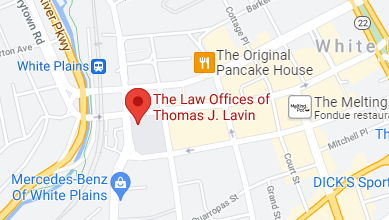Estate planning is something nearly everyone should do, whether the estate is large or small. Having an experienced estate planning attorney involved is highly recommended to ensure your wishes and needs will be legally enforceable. But before sitting down with an attorney, there is some advance work you can do that will save time in the overall process. Here’s what you need to do.
What Is Estate Planning?
Estate planning is the development of plans to determine how someone’s estate–their assets, property, and (if applicable) guardianship for minor children–will be handled if the estate owner becomes incapacitated or dies. Without an estate plan, the estate would go to probate court and be distributed by the court. That distribution may not look anything like how the estate owner would have wanted it to. For example, assets distributed by the court will only go to family members. If there are no living family members, the state takes the assets. If the estate owner had friends or organizations they would have wanted to assets to go to, their wishes won’t be honored.
Sometimes people think that if their estate is not large, they don’t need an estate plan. However, it’s valuable for nearly any size of estate. If you have assets you want to be distributed in a specific way, estate planning is the way to manage that.
What Should I Bring to an Estate Planning Meeting?
Gathering and developing the following items ahead of time will get your first estate planning meeting with an attorney off to an organized, efficient start. Some of these things take more time than others, so be sure to allow yourself plenty of time before the meeting.
Estate Planning Goals
Every estate is different, so it’s a good idea to define your goals for your estate, whether to leave everything to your children, set aside funds so a special-needs family member will be taken care of, or endow a favorite arts organization.
Financial Records and List of Assets and Debts
A good estate plan should have all financial accounts and other assets and debts included. These can include:
- Bank records and financial statements
- Investment and stock records and certificates
- Deeds to property (homes, vehicles, etc.)
- Trademark, copyright, or patent registrations
- Life insurance documentation
- Business agreements and contracts
Agreements and Contracts
Any contracts or agreements that can affect your estate should be presented to your attorney, including:
- Prenuptial agreements
- Divorce agreements
- Any prior agreements to leave specific assets to someone in your will
- Any documents previously drawn up for estate planning
Guardians for Minor Children
When there are minor children, it’s imperative that parents draw up a will naming who should be their guardians in the event that the parents are no longer able to. It’s also a good idea to have a secondary choice in case something happens and the first choice is unable to take guardianship.
If the parents die unexpectedly and no will was drawn up, or a guardian wasn’t named in the will, the courts will decide who will be guardian.
List of Beneficiaries
Beneficiaries are the people or organizations (such as charitable bequests for nonprofits) that you want to receive the assets in your estate, along with current contact information. If any beneficiaries have special needs, have debt issues, are addicts, have ever been in jail, or are eligible for public or governmental assistance, the attorney needs to know that too. There are different types of estate planning tools to deal with special situations such as those.
Advanced Directives Choices
When planning an estate, it’s recommended that people consider having an advanced directive that will determine what medical treatments they would or wouldn’t want at the end of life. This can be difficult to think about, but without it, someone could be subjected to medical interventions they wouldn’t want, or their families may end up in court because they have different opinions as to what should be done.
Pets
Increasingly, people include who should be named caregiver for the family’s pets, if the pets outlive the humans. In New York, it’s possible to set up a pet trust that not only names the caregiver(s), but provides them with some money to help care for the pet.
Executors and Trustees
Compile a list of the people you trust to fulfill your wishes, whether for a will, trust, or advanced directive. This is a category worth putting time and consideration into.
Often people select family members to play these roles, but if you have concerns about whether or not your family members would follow your instructions, it might be worth considering someone else.
List of Questions
While the estate planning attorney will have plenty of questions for you, drawing up a list of questions yourself is a good idea. Estate planning can be complex and sometimes difficult to understand.
What Should I Do if I Was Injured While Riding in an Uber or Lyft?
Call the Law Offices of Thomas Lavin at 718-829-7400 for a free case evaluation. Every estate is unique, and there’s no one-size-fits-all estate plan. Our knowledgeable, experienced estate planning attorneys can walk through your estate with you and advise which estate planning tools could be most appropriate for your situation. There are a variety of tools and plans available, and we can help you determine which are the best for you and your needs.









